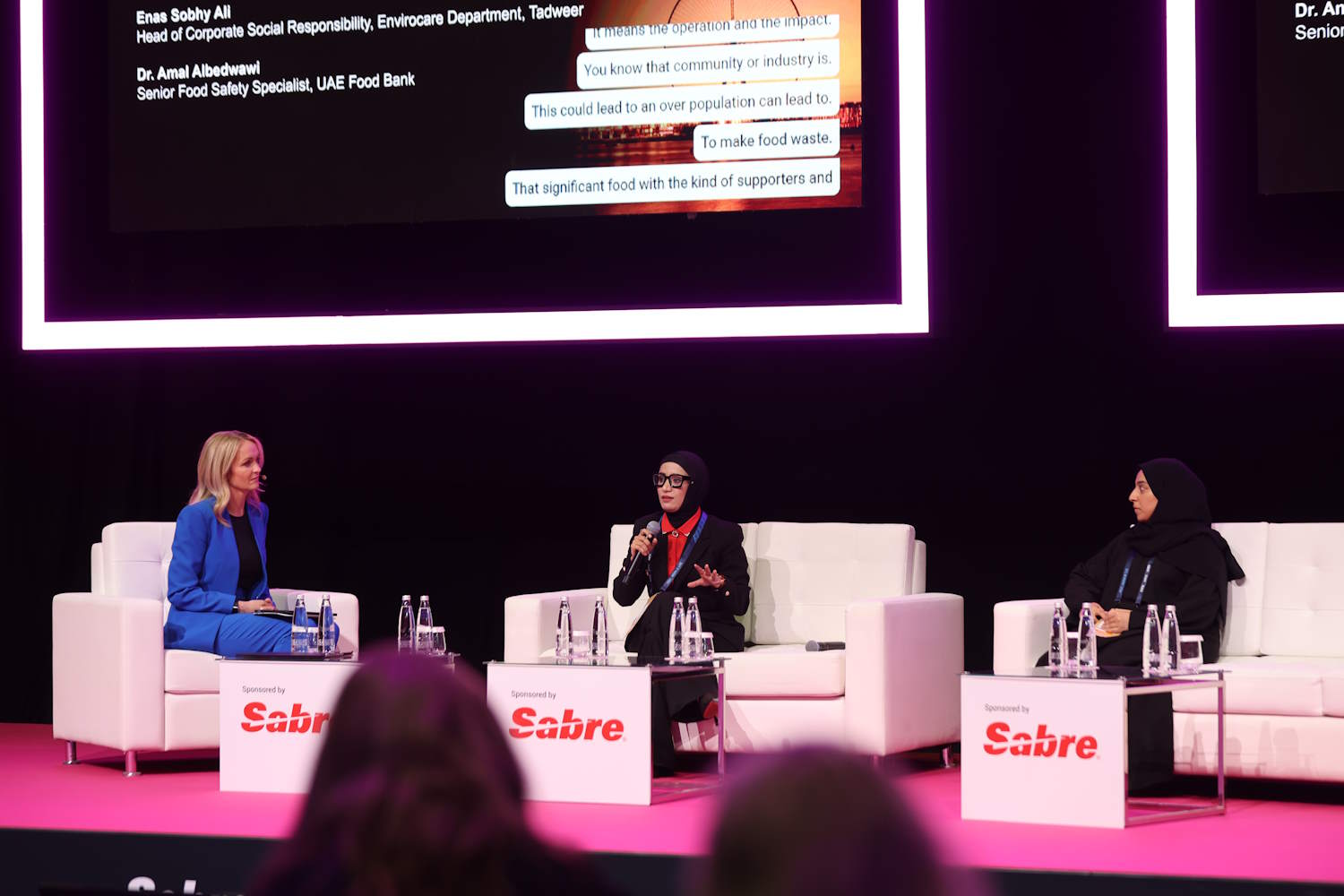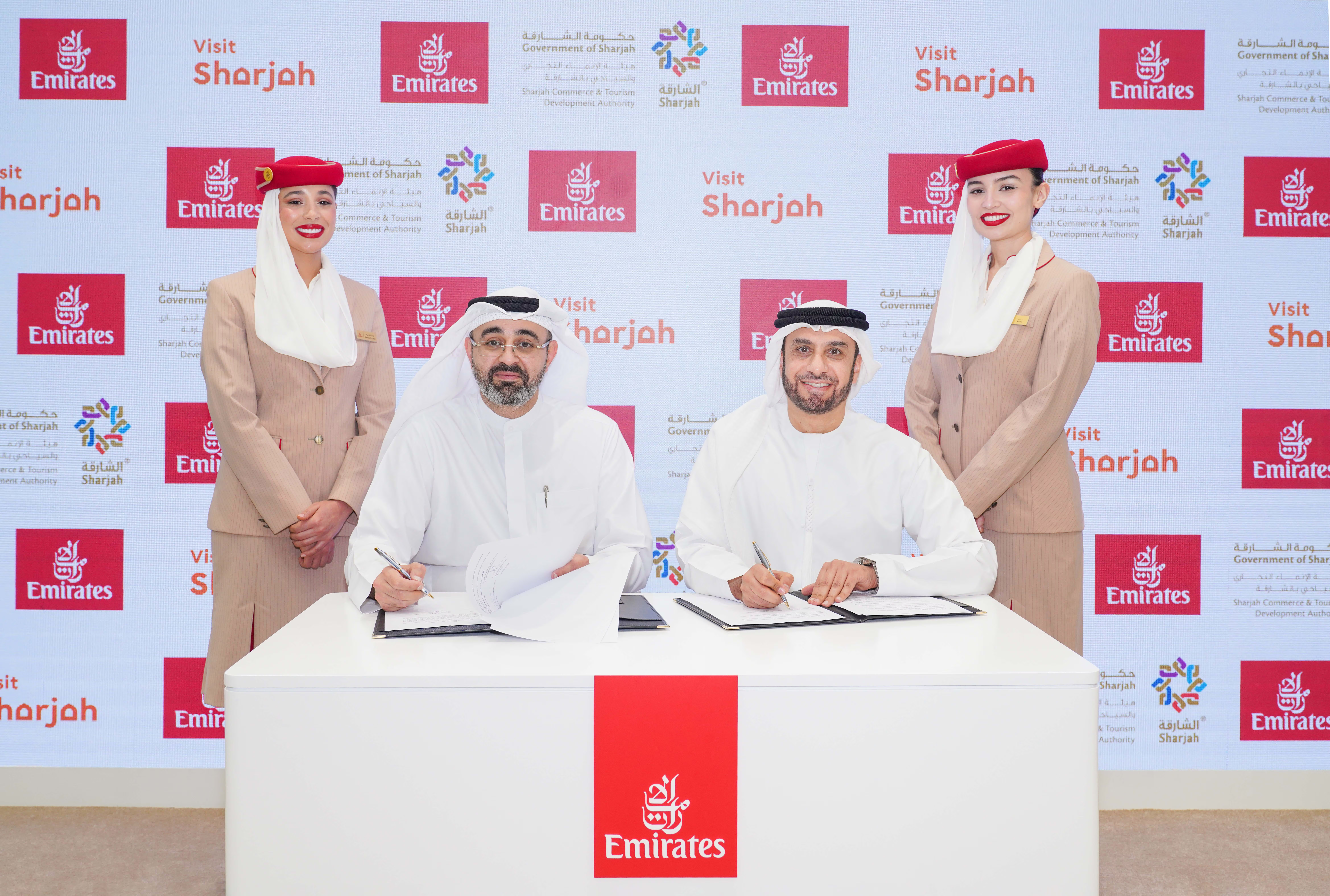Delegates at the Arabian Travel Market (ATM) 2025 in Dubai learned that two critical areas – food waste and energy generation – present immediate opportunities for companies to achieve substantial environmental and economic benefits. The need for sustainability in the hospitality sector has never been more urgent, as discussions around climate change and resource conservation gain significant traction worldwide. The hospitality industry can lead by example by implementing effective strategies to reduce waste and enhance energy efficiency.
Speaking at a session focused on sustainability in hospitality, Enas Sobhy Ali, Head of Corporate Social Responsibility at Tadweer, underscored the need for stronger local engagement and systemic change within hotels. “I believe that one of the key challenges facing the hospitality industry is the disconnection between operation and impact. As the priority for the hospitality industry is customer satisfaction, this can lead to overproduction and significant food waste from hotels. One of the most effective and simplest ways to address this is to start introducing waste auditing and enhancing the system for recycling bins,” she said. This approach not only minimizes waste but also empowers staff and guests to participate in sustainable practices, creating a culture of environmental responsibility.
ATM 2025 Dubai also highlighted the importance of sustainable practices in the hospitality industry to align with global environmental goals. The role of the hospitality sector in contributing to environmental sustainability is increasingly recognized as essential. By adopting sustainable practices, hotels can not only reduce their environmental footprint but also attract eco-conscious travelers, ultimately benefiting their bottom line.
Recent data supports the urgency of these concerns. According to the UNEP Food Waste Index Report 2024, an estimated 1.05 billion tonnes of food were wasted globally across retail, food service, and household sectors in 2022. Notably, 60% of that waste came from households, 28% from food services, and 12% from retail, highlighting the need for more effective strategies in the hospitality sector, especially in the context of ATM 2025 Dubai. This underscores the importance of hotels implementing measures such as portion control and meal planning to minimize food waste. Additionally, outreach programs can be established to educate guests on sustainable practices.
Experts speaking at the event emphasized that reducing food waste can not only lower operational costs but also promote a circular economy within the travel and hospitality industry. Complementing these efforts, new energy generation models are helping hotels reduce their carbon emissions while aligning with broader sustainability goals. For instance, integrating renewable energy sources like solar panels or wind turbines can drastically cut energy expenses and enhance the hotel’s image among environmentally conscious consumers.
Dr. Amal Albedwawi, Senior Food Safety Specialist at the UAE Food Bank, pointed out the complexity of implementing unified food recycling practices in the hospitality sector. “As the UAE Food Bank, the main challenge we face when it comes to rescuing and recycling food from hotels and hospitality entities is the many different management approaches within the industry. Each hotel operates separately from one another, so we need to explain the merits of recycling food waste to each manager individually. We try to make them understand that we work closely with the Food Safety Department to ensure that the participating hotels will not undertake any risk by participating in our food bank programmes. Additionally, we encourage hotels to partner with local charities and organizations to redistribute surplus food, further reducing waste and supporting the community.”
The discussions aligned closely with ATM 2025’s broader theme, “Global Travel: Developing Tomorrow’s Tourism Through Enhanced Connectivity.” The Future Stage continues to spotlight transformative trends, including technology and entrepreneurship. By incorporating technology solutions, such as waste management apps or tracking systems, hotels can gain insights into their waste patterns and implement changes that lead to meaningful reductions in food waste.
Elsewhere at the event, Cassie Kozyrkov, CEO of Kozyr, delivered a keynote titled “AI Adoption: From Buzzwords to Business Strategy,” providing insights into how travel businesses can harness artificial intelligence for growth and innovation. AI can play a critical role in optimizing operations, predicting consumer trends, and enhancing customer experience, all of which can contribute to more sustainable business practices by reducing waste and improving resource allocation.
Danielle Curtis, Exhibition Director ME at Arabian Travel Market, noted the importance of such platforms in facilitating change. “Sustainability challenges, such as food waste, require innovative thinking and collaboration within our industry. By facilitating practical discussions, ATM 2025 provides businesses with the knowledge and strategies they need to implement real change and safeguard their operations for the future. Moreover, these initiatives can serve as a model for other industries striving to achieve sustainability and positively impact the environment.”
Now in its 32nd edition, Arabian Travel Market continues tomorrow (April 30) at the Dubai World Trade Centre, bringing together over 55,000 travel professionals from 166 countries. The event remains a vital platform for knowledge exchange, sustainable innovation, and building a more inclusive future for global tourism. As stakeholders from various sectors come together, it is crucial to foster partnerships that will drive the industry toward a more sustainable path, ensuring that tourism can thrive without compromising the health of our planet.
In addition, workshops and breakout sessions throughout ATM 2025 are designed to provide actionable insights and strategies on implementing sustainable practices. Participants can engage in discussions on topics such as reducing carbon footprints, managing resources efficiently, and exploring zero-waste initiatives that have been successfully adopted by pioneering hotels and resorts worldwide. By sharing best practices and success stories, the event aims to inspire all attendees to commit to sustainability in their own operations.





